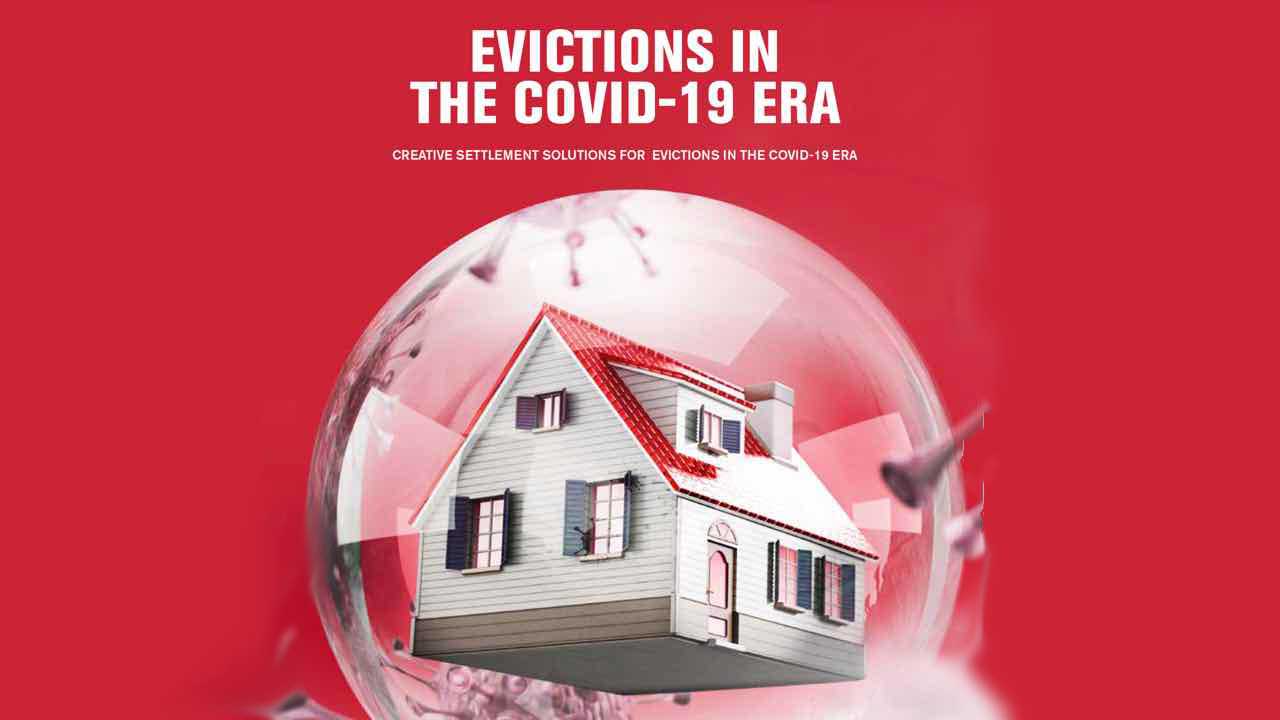McMichael Taylor Gray, LLC Managing Partner, Annalise Hayes Deluca, authored an article about evictions and Covid 19 in volume 7 of the AFLN Angle. (See page 28)
“For now, the focus should shift from litigating on behalf of our clients to working with our clients and their tenants to resolve the matter in a mutually beneficial manner.”
STATE-SPECIFIC EVICTION moratoriums have been the norm for the better part of this year with differing levels of restrictions and a complete lack of uniformity. However, that recently changed in early September with the release of the Center for Disease Control’s Order temporarily halting residential evictions throughout the country. The purpose of the Order was to prevent the further spread of COVID-19. It is the most far-reaching moratorium on residential evictions to date, as it also includes properties that did not fall under the government-sponsored enterprise moratoriums already in place and properties located in states with less restrictive moratoriums.
While it is important to note that organizations such as the New Civil Liberties Alliance (NCLA) and the National Apartment Association (NAA) have filed suit against the Center for Disease Control challenging the legality of the Order, the Court may take weeks or months to reach a decision. Likewise, landlords are filing suit against Governors in states like New York and California for imposing severely restrictive moratoriums in violation of state law. Decisions in those cases will likely vary widely and contribute further to the uncertainty of the environment in which we find ourselves. With both legal and
public policy considerations to take into account, there is no telling when a resolution will be reached.
With over 100 million renters in the United States and a current national unemployment rate of 8.4%, the moratoriums affect a large portion of our population. However, it is equally important to consider that landlords are also adversely affected by COVID-19. Many landlords are from low-to-moderate income households looking to make an investment through purchasing and leasing rental properties. Without the stream of rental income, they face foreclosure and loss of their properties. Even the large corporations are suffering due to the previously unheard-of number of non-paying tenants. It is unsustainable for landlords big and small. The negative economic impact caused by COVID-19 is felt by landlords and tenants alike. With both sides in a seemingly no-win situation, how do we move forward? It is time to get creative with settlement solutions.
Before the pandemic began, filing suit was often the quickest and most efficient way to remove a non-paying tenant. Now, with the numerous restrictions and harsh penalties for violations of said restrictions, eviction actions are not always a viable option. Instead, landlords should review the facts of each case with counsel to determine how to proceed and potentially settle the matter outside of Court. As lawyers we may not be used to suggesting ways to stay out of the courtroom, but unprecedented times call for unprecedented measures. For now, the focus should shift from litigating on behalf of our clients to working with our clients and their tenants to resolve the matter in a mutually beneficial manner.
There are a multitude of reasons tenants are refusing or unable to pay rent. Perhaps the tenant was adversely affected by the pandemic. They may no longer be able to afford the rent and may be amenable to moving, but they simply cannot come up with the deposit to rent a new place. In that case, providing “cash for keys” to contribute to the tenant’s deposit or moving expenses may be the way to go. When speaking to tenants, one of the top concerns they have is how they will come up with first, last, and deposit in order to move. Many tenants realize that they can no longer afford the rent, but they feel as if they have no alternatives. By providing “cash for keys” to cover or contribute to the deposit, landlords benefit by getting the tenant to vacate without further legal action, and the tenant benefits by having access to funds they would otherwise not have. Both parties are left in a better position.
Alternatively, landlords may have a tenant who owes a substantial amount of back rent, but they would like to remain at the property. Many tenants are not in a position to come up with several months rent all at once. It is just one of the many ways in which the moratoriums fail to address major issues. None of the moratoriums relieve the tenants from the obligation to make the payments, but rather, they just keep putting off the payments until it becomes an insurmountable sum. Forgiving all or some of the back rent, prorating the back rent over the remainder of the lease term, or providing discounts on rent are all ways to work with the existing tenant to achieve a desirable outcome for all involved. For example, let’s say a landlord has a tenant who is six months behind on rent with six months left on the lease. The landlord could offer to forgive the six months of rent entirely in order to have the tenant resume normal payments, the landlord could prorate the first six months of unpaid rent over the remaining six months, or the landlord could agree to a discount on rent if the tenant makes the next three payments on time. At this point, recovering even a portion of the back rent owed or keeping a tenant who is willing and able to resume making payments in the property can be considered a win for landlords.
It is also important to consider the quality of tenant when reviewing these options. Did the tenant fail to make any payments before the pandemic? Were they regularly late on rent? Are they otherwise responsible and good tenants? How long have the tenants resided in the property? There is no guarantee that removing one tenant won’t result in the same scenario playing out with the next. This way, the property remains occupied, the landlord gets paid moving forward, and the tenant does not have to look for another place to live, starting the cycle all over again. With all of the confusion and ambiguity surrounding evictions, it is more important than ever for attorneys and their clients to think outside the box and examine all the possible options to resolve a case. With a looming wave of evictions surely to come, getting ahead of it will put all parties in a better position to navigate the post-moratorium environment.






